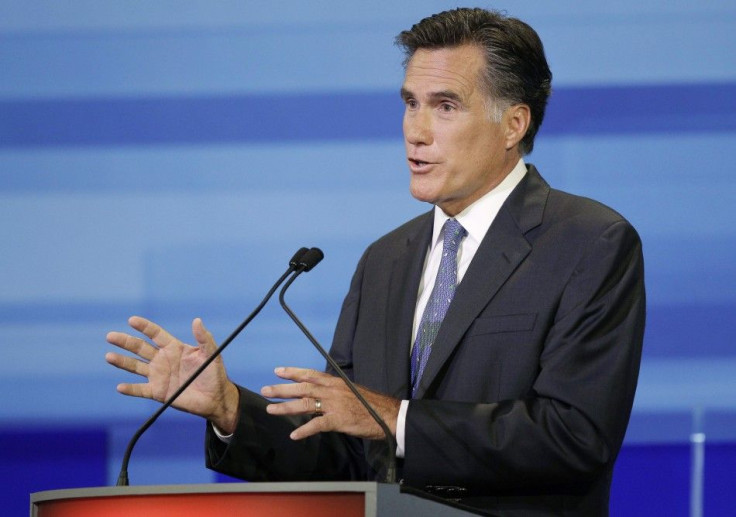Could Jimmy Carter's Comments Doom Mitt Romney?
Analysis

Former President Jimmy Carter appeared on MSNBC Thursday night and endorsed candidate Mitt Romney for the Republican Party's presidential nomination.
The former president told Rachel Maddow that he would be very pleased to see him win the Republican nomination.
The big question coming out of Carter's unsolicited endorsement of Romney is just what kind of effect could it have on Romney's nomination chances?
The reaction almost certainly will be negative and could easily damage Romney's presidential hopes.
Romney's already faced heavy heat from other presidential candidates for his health care initiatives in Massachusetts and an endorsement from a disliked former Democratic president isn't going to help his cause.
Romney's struggled in the past to engage the conservative base -- in part because he's stiff and robotic in speeches -- and his at-times moderate viewpoints turned off some far right-wing conservatives.
He doesn't appeal to the Tea Party contingent like Rick Perry or Michele Bachmann and has mostly gotten by because he's more established and has a bigger war chest than any of the other candidates.
Romney currently polls second behind Rick Perry in most national polls on the Republican primary, but has deftly stayed under the radar.
Perry's gotten a lot of attention of late, but often for the wrong reasons. He's had the Bernanke treasonous comments, he's called Social Security a Ponzi Scheme, and come under a lot of fire from other candidates for his HPV vaccination for young girls in Texas.
Candidates have acknowledged Perry as the frontrunner and made it a point to attack him during the Party's debates -- all while Romney makes his points but largely stays in the shadows.
Expect that to change going forward, especially because of these comments.
The next Republican debate is next Thursday and you better believe other candidates are going to go on the offensive about Carter's comments.
Recently the Republican race has delved into a battle of who is more conservative than the rest. Each of the three debates, featuring the eight main candidates, has promoted similar thoughts on Obama's healthcare plan, what to do with the Federal Reserve, and how to cut spending.
Each candidate is trying to differentiate, of course, but also are making sure to not portray a left or liberal perspective. As if there was a handbook that all conservative candidates must follow, any time a candidate has moved away from the standard Republican viewpoints, the rest of the candidates blast that person.
Perry's long been a Tea Party favorite, but at the recent CNN/Tea Party Express debate he came under fire for his HPV cronyism and allowing illegal immigrants in Texas to have opportunities to get financial aid in going to college.
If those types of views are going to generate negative reactions, just imagine the audience's response when candidate after candidate brings up Carter's failures and his recent endorsement of Romney.
Although Romney has mostly floated under the radar, the main attacking point against him is the similarity between his Massachusetts health care plan and President Obama's health care mandate -- a measure largely detested by conservatives.
Romney has tried to distance himself as much as possible from Obama on health care, but this endorsement gives his opponents another opportunity to connect the dots.
Even worse for the former Massachusetts governor is that in his endorsement, Carter doesn't think Romney could win against Obama. Now clearly it's obvious that Carter would think that Obama will win his re-election efforts, but it's another talking point that candidates can utilize.
Former Republican presidential candidate Mike Huckabee on Fox News wisely advised Romney to publicly appreciate Carter's endorsement but make it clear that Romney doesn't endorse Carter's views.
This could certainly help mitigate potential negativity, but it's hard to stop a big locomotive once it gets going.
This clearly isn't a campaign ender for Romney -- to suggest otherwise would be ludicrous -- but Carter's comments undoubtedly will turn up the heat on a candidate that has done well, but largely avoided major negative attention.
Romney's campaign is still intact, but expect his name to be attacked much more frequently at the next debate.
© Copyright IBTimes 2025. All rights reserved.





















